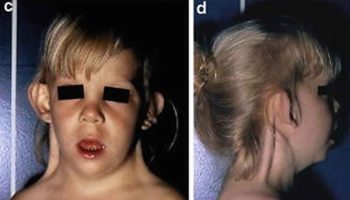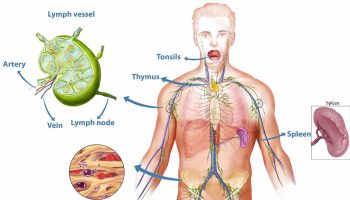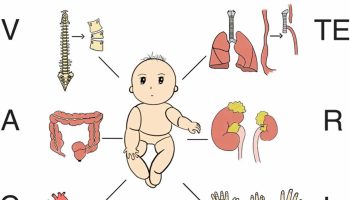Contents
What is exploding head syndrome
Exploding head syndrome is a rare parasomnia (general sleep disruption) in which affected individuals awaken from sleep with the sensation of a loud bang or loud noises like an explosion or a sense of explosion in the head during sleep transitions 1. Contrary to the name, exploding head syndrome is not associated with pain. However the noise attacks can elicit a great deal of fear, confusion and distress in sufferers. Those who experience exploding head syndrome report being startled awake by what’s often described as a loud, sharp noise, such as the crack of a whip, an explosion, a gunshot, a lightning crack, a metallic crashing noise, or an electrical noise. Some people also may experience flashes of light, mild pain, sweating, fear, a racing heart rate and muscle jerks/twitches with the most severe associated with respiration difficulties. Episodes of exploding head syndrome usually occur on falling asleep or, less often, on awakening 2. The sensation is very brief (typically for a few seconds only) and disappears completely when awake, although it may recur on further sleep attempts.
It’s not known what causes this sensation, but it’s believed to occur as your brain is transitioning from wakefulness to sleep. It’s thought to be similar to the common phenomenon of jerking awake as you fall asleep.
Some scientists have estimated that exploding head syndrome may affect 10% of the population 3. Females tend to be more at risk than males and the average age of onset is 50 years old. Although exploding head syndrome has been reported in patients as young as 10 years, the age of onset is usually after age 50 as in hypnic headache, and the condition has a slight female preponderance 1.
The attacks occur with variable frequency for a few weeks or months. Attacks can be one-time events or can recur with attacks increasing or decreasing over time, sometimes with no incidents over long periods of time 4.
Some people who experience exploding head syndrome have one event in a lifetime. Others have several a night. Episodes may occur consistently or come and go. Exploding head syndrome is estimated to occur at least once in about 10 percent of the population and appears to be more common in women and older adults.
Exploding head syndrome doesn’t appear to cause direct physical harm. The main complication is fright and distress in those who have it, either because they fear a serious disease or because sleep is disrupted.
Exploding head syndrome diagnosis involves ruling out other possibilities, including a stroke. These possibilities usually can be distinguished easily from exploding head syndrome. For example, strokes usually have one-sided symptoms. Headaches are usually more painful, and the pain lasts longer than an episode of exploding head syndrome. Night seizures usually aren’t remembered, and panic attacks usually aren’t accompanied by a loud noise as is exploding head syndrome.
Reassurance and education on the phenomenon are often the only treatment needed. Additional treatment steps aren’t well-studied but may include management of stress or anxiety, or any known sleep disorders. In some cases, the use of one of several drugs may help, including tricyclic antidepressants, heart drugs in the calcium channel blocker class, or anti-seizure drugs.
If yo continue to have exploding head syndrome episodes see your health care provider to rule out other possible causes than exploding head syndrome. If no cause is found, an appointment with a sleep medicine specialist may be recommended to determine if you symptoms are the result of a different sleep disorder.
What causes exploding head syndrome
The cause of exploding head syndrome is unknown. Some possibilities are a sudden movement of a middle ear component or the Eustachian tube, or perhaps a brief temporal lobe complex partial seizure (though EEG studies have generally been reported as normal) 5. There is a correlation with stress or extreme fatigue. exploding head syndrome has also been linked to rapid withdrawal from benzodiazepines and selective serotonin reuptake inhibitors 1.
There are other various theories as to what might cause exploding head syndrome. For instance, some scientists have speculated that exploding head syndrome
may be associated with minor temporal lobe seizures. Another theory is that exploding head syndrome is caused by stress/anxiety, impairments in calcium signalling and brainstem neuronal dysfunction.
Exploding head syndrome symptoms
Exploding head syndrome affected individuals awaken from sleep with the sensation of a loud bang or loud noises like an explosion or a sense of explosion in the head during sleep transitions 1. Those who experience exploding head syndrome report being startled awake by what’s often described as a loud, sharp noise, such as the crack of a whip, an explosion, a gunshot, a lightning crack, a metallic crashing noise, or an electrical noise. Some people also may experience flashes of light, mild pain, sweating, fear, a racing heart rate and muscle jerks/twitches with the most severe associated with respiration difficulties. There is no actual headache or persistent pain, but some patients may experience a brief, mild jab-like sensation. Exploding head syndrome is often so disturbing that affected individuals are understandably quite concerned.
Exploding head syndrome treatment
Because of the benign and self-limited nature of exploding head syndrome, many individuals do not require medical treatment. Reassurance reduces anxiety; however, in some patients, exploding head syndrome is very troublesome and can cause sleep-onset insomnia. If an individual is suffering from disturbed sleep or considerable distress as a consequence of exploding head syndrome, then treatment may be necessary. For this small subgroup of patients, medications including calcium channel blockers like nifedipine 6 or flunarizine 7, topiramate 8, or clomipramine have been found to be effective in reducing the frequency or resolution of the exploding head syndrome symptoms. Non-pharmacological strategies such as relaxation, improved sleep hygiene and counseling may also help to alleviate symptoms.
If stress is causing the episodes, it is advised to either seek to clear the problem. This could include reading, yoga, relaxing music or a hot bath before bed. These steps have also demonstrated to have positive effects in achieving quality sleep in general.
If the disturbances are the result of sleep deprivation, it is recommended to institute a more balanced routine that includes a minimum of 6 hours of sleep per night. If sleep deprivation is being caused by other sleep related disorders, these should be evaluated.
- Ganguly G, Mridha B, Khan A, Rison RA. Exploding head syndrome: a case report. Case Rep Neurol. 2013;5(1):14-7. https://www.ncbi.nlm.nih.gov/pmc/articles/PMC3573786/[↩][↩][↩][↩]
- Maheshwari PK, Pandey A. Unusual headaches. Ann Neurosci. 2012;19(4):172-6. https://www.ncbi.nlm.nih.gov/pmc/articles/PMC4117064/[↩]
- Exploding head syndrome. https://www.sleepassociation.org/sleep-disorders/more-sleep-disorders/exploding-head-syndrome/[↩]
- Sachs C, Svanborg E. The exploding head syndrome: polysomnographic recordings and therapeutic suggestions. Sleep. 1991;14:263–266.[↩]
- Exploding Head Syndrome. https://www.sleepassociation.org/sleep-disorders/more-sleep-disorders/exploding-head-syndrome/[↩]
- Jacome DE. Exploding head syndrome and idiopathic stabbing headache relieved by nifedipine. Cephalalgia. 2001;21:617–618.[↩]
- Chakravarty A. Exploding head syndrome: report of two new cases. Cephalalgia. 2008;28:399–400.[↩]
- Palikh GM, Vaughn BV. Topiramate responsive exploding head syndrome. J Clin Sleep Med. 2010;6:382–383.[↩]





